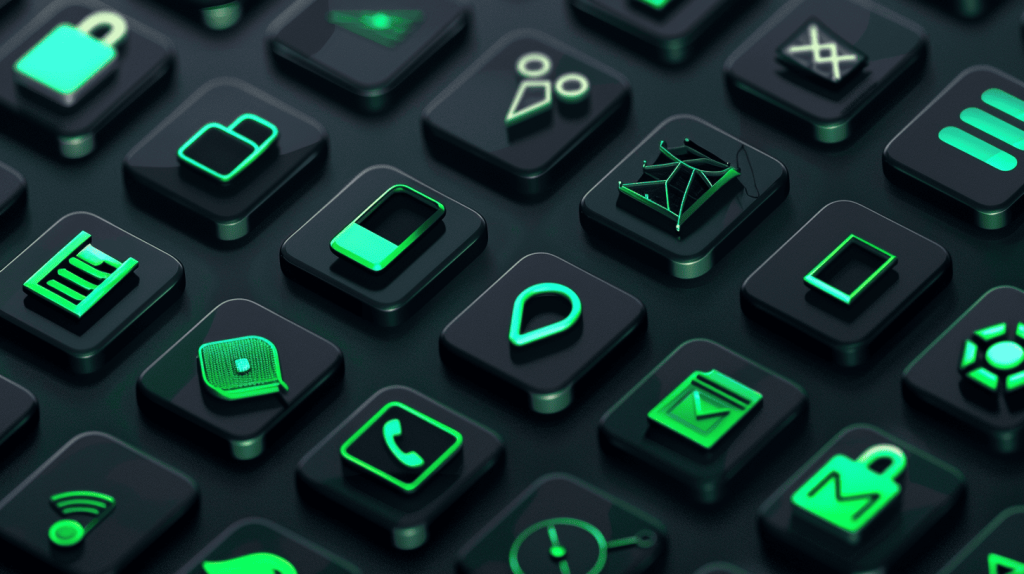Let’s get right to it. You’ve probably heard of encrypted messaging apps that promise to keep your chats private, but it’s tough to know which ones actually deliver. With government pressure on tech companies and frequent data breaches, choosing an app isn’t just about features anymore. It’s about keeping your digital life safe.
The Signal Gold Standard
Signal remains the top pick for encrypted messaging, and for good reason. It’s open source, uses end-to-end encryption by default, and even Edward Snowden recommends it. The Signal Protocol also powers encryption for WhatsApp and Google Messages, but Signal itself collects almost no metadata. If law enforcement asks for information, Signal can only share the date you created your account and the last time you connected. That’s it.
Recent updates to the app now let you use usernames, so you no longer have to share your phone number. This is a big win for privacy. You can connect with others while keeping your real number private, which is important for journalists, activists, or anyone who cares about privacy.
Telegram’s Complicated Reality
Here’s where it gets tricky. Telegram claims to be secure, but regular chats aren’t end-to-end encrypted. Only the “Secret Chats” feature offers real encryption, and many people don’t realize this. Regular messages are stored on Telegram’s servers, so you have to trust the company with your data, even if they say it’s secure.
In August 2024, Telegram’s founder Pavel Durov was arrested in France over content moderation issues on the platform. This led to debates about encryption and what responsibilities messaging apps have. The incident highlighted how these apps can get caught between law enforcement and government demands.
If you use TelegIf you use Telegram, stick to Secret Chats for anything sensitive. Otherwise, your messages are about as secure as regular SMS.st Problem
WhatsApp uses Signal’s protocol, which is a plus, but keep in mind it’s owned by Meta. Your messages are end-to-end encrypted, but Meta still collects metadata like who you talk to, when, how often, and your contact list. They use this data to build profiles and target ads on their other platforms.
For most people who just want to chat with family, WhatsApp works well. But if you need to keep something separate from your identity, you might want to choose another app.

Dark Web Considerations
If yIf you use Tor to visit dark web marketplaces or forums, picking the right messaging app matters even more. Using apps tied to your phone number or real identity defeats the goal of staying anonymous. Many dark web users pick apps that don’t use traditional identifiers.ssion sends messages through a decentralized onion routing network, much like Tor. You don’t need a phone number, email, or any personal details to sign up. Messages travel through several nodes, making it very hard to trace who is talking to whom. The downside is that it’s slower than centralized apps, but the extra anonymity fits what Tor users expect.
SimpleX Chat’s Radical Approach
SimpleX Chat began with a bold idea: you don’t need a user identifier at all. There’s no phone number, no username, nothing. Each connection uses a unique queue address, so even SimpleX can’t map your social network. The app is fully open source and passed a security audit in 2024.
For dark web researchers, journalists, or anyone who values anonymity, SimpleX offers something truly different. The way the app is built makes you basically untraceable. The interface isn’t as smooth as mainstream apps, but its privacy approach is groundbreaking.
Briar: Offline-First Messaging
Briar stands out for its unique approach. It can sync messages over Tor, local WiFi, or Bluetooth, so it doesn’t need regular internet access. This helps when traditional networks are down or blocked. Activists in oppressive countries use Briar because it doesn’t rely on central servers that could be seized or shut down.
The Metadata Problem
Many people miss this point: even with end-to-end encryption, metadata can reveal a lot. Who you talk to, when, and how often can show patterns. Law enforcement has built entire cases using only metadata. That’s why apps that limit or remove metadata collection matter so much for privacy-focused users.
When choosing an app for sensitive conversations, ask yourself: What information is available about my chats, even if the messages are encrypted? Can someone figure out my social network? Is my real identity linked to my account?
The Bottom Line
No single app is right for everyone. If you want strong privacy and easy use, Signal is still the best mainstream choice. For real anonymity, especially if you use Tor, Session or SimpleX Chat offer more protection than basic encryption.
The real question isn’t which app has the best encryption, since most use strong cryptography. Instead, ask who controls the metadata, what happens to it, and how much you trust that company with your digital footprint.t.
Stay skeptical, stay encrypted, and remember that convenience usually comes at the cost of privacy. Choose your tools based on your real threat model, not just marketing claims.
